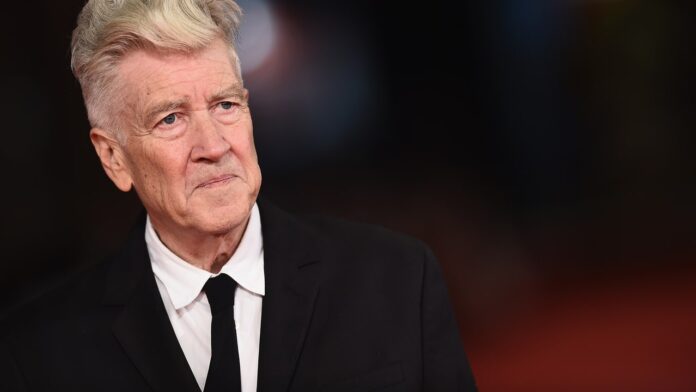David Lynch has died. The news was announced on the filmmaker and musician’s official Facebook page. “We would appreciate some privacy at this time,” Lynch’s family wrote. “There’s a big hole in the world now that he’s no longer with us. But, as he would say, ‘Keep your eye on the donut and not on the hole.’” A cause of death was not provided. David Lynch was 78 years old.
David Keith Lynch was born in Missoula, Montana, in 1946. He and his family moved around a lot during Lynch’s childhood, with stops in Idaho, North Carolina, Washington, and Virginia. In his youth, Lynch was a Boy Scout and he rose to become an Eagle Scout. Lynch eventually attended Corcoran School of the Arts and Design, in Washington, D.C., and Boston’s School of the Museum of Fine Arts to study painting.
Lynch’s next film, Wild at Heart, also starred Rossellini and Dern, but it was the director’s other 1990 project that would make a greater lasting impact. The first episode of Twin Peaks, which Lynch co-created with Mark Frost, premiered on ABC in April 1990. The show, scored by Badalamenti, told the story of Laura Palmer, a homecoming queen in rural Washington who’s mysteriously murdered. The series captivated the nation with the question of “Who killed Laura Palmer?” The answer, however, was not something that Lynch was eager to reveal, leading to his eventual departure before Palmer’s killer was revealed in Twin Peaks’ second season.
Despite his great involvement with Twin Peaks, Lynch directed very few episodes of the show. Nevertheless, his directorial touch was evident in the series premiere and the series finale. He also made the prequel film Twin Peaks: Fire Walk With Me, polarizing upon its release but now regarded as one of Lynch’s greatest works. The movie and its storylines, including those with David Bowie, also played an outsize role in the third season of Twin Peaks, 2017’s The Return.
After Twin Peaks: Fire Walk With Me, Lynch directed just four more films, Lost Highway (1997), The Straight Story (1999), Mulholland Drive (2001), and Inland Empire (2006). He received his third and final Academy Award nomination for Best Director for Mulholland Drive.
Beyond feature films, Lynch directed several music videos. He notably did the video for Chris Isaak’s “Wicked Game,” which grew in popularity after featuring in Wild at Heart. Later, Lynch did videos for Moby (“Shot in the Back of the Head”), Nine Inch Nails (“Came Back Haunted”), Donovan (“I Am the Shaman”), and more.
As Lynch’s movie-making slowed, his musical output increased. He released an album with Jocelyn Montgomery, Lux Vivens, in 1998. He shared another collaborative work, BlueBob, with John Neff, in 2001. By 2011, Lynch released his first solo album, Crazy Clown Time, which critic Mike Powell described as “tense, repetitive bluesy music permeated by reverb and echo.” Lynch released one more solo studio album, The Big Dream, in 2013. His final musical work, a collaboration with Chrystabell called Cellophane Memories, came out last year.
In a statement shared on Instagram, Chrystabell, who also starred in Twin Peaks: The Return, wrote:
More artists have also been reacting to the news of Lynch’s death. “My hero,” Flying Lotus posted on X. And one of the world’s greatest artists of any era.”
“David Lynch was a lifelong inspiration, a true North Star for any artist, a singular voice, singular vision, someone who could make you marvel & wonder,” A-Trak shared. “The goat!!! Fuck. What an enormous loss.”
Questlove, on Instagram, wrote: “Lynch was the first human/creative that stressed the importance of not overworking and taking time out to breathe & meditate and searching for creative avenues not in my comfort zone (he was my guiding creative light for the Somethingtofoodabout book from 2016. Took a liking to me always inviting me to his events and parties and really stressing the importance of self care. 🙏🏾.”
The Smashing Pumpkins’ Billy Corgan wrote, in a statement posted online: “Working with him was like a dream out of one of his movies, and I treasure the times I got to speak with him and hear first-hand his vision for a film. I truly encourage anyone who loves movies and television to watch all that David produced. He was a true artist, through and through.”
“Farewell, David Lynch,” said Matmos’ Drew Daniel. “I suppose I knew that inevitably this day would come but I am still breathless at it. I am grateful for the beauty, humor, magic, and madness of your art. It was a companion, provocation and example of integrity to me for most of my adult life. Rest well.”
And Kelly Lee Owens posted on X, “David Lynch. Thank you for being the biggest advocate for dreamers. We’re grateful. Onwards 💔🕊️.”
Source : Pitchfork






